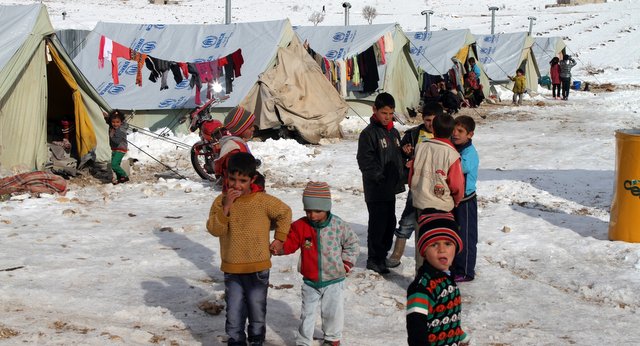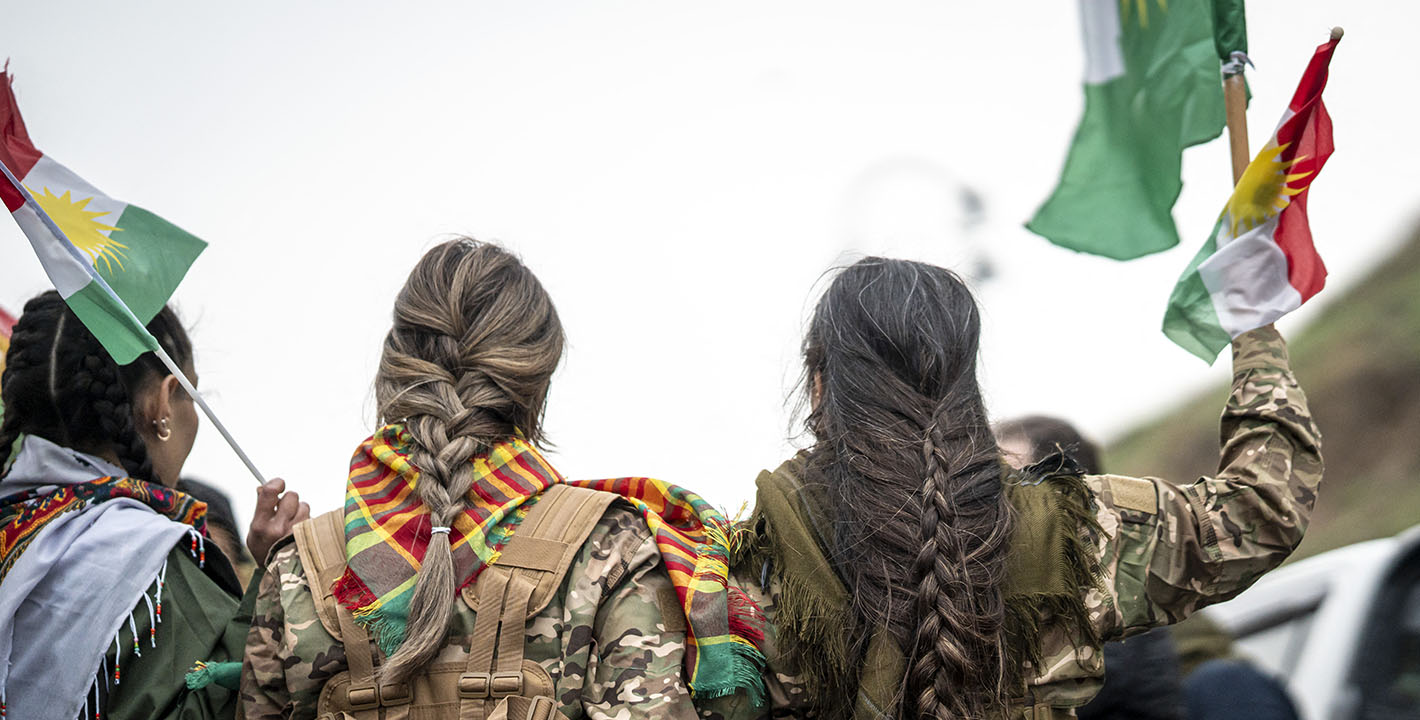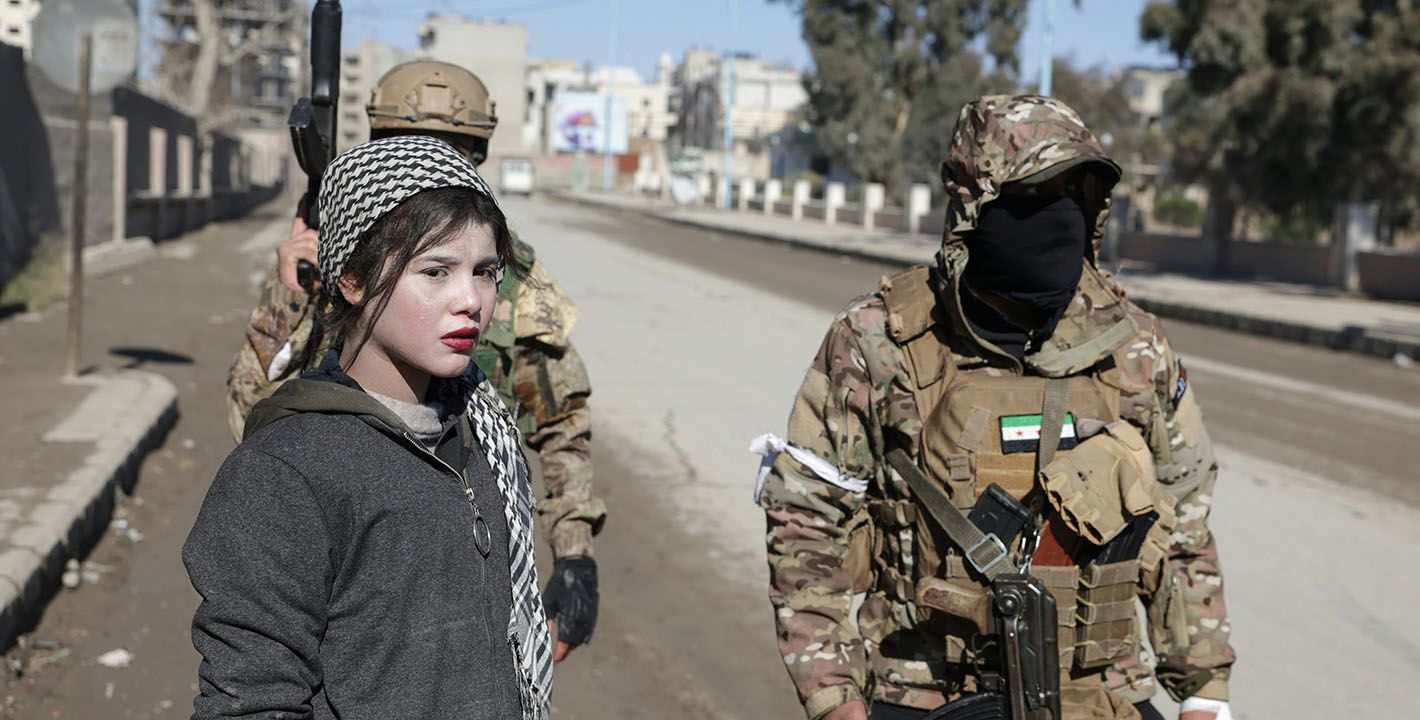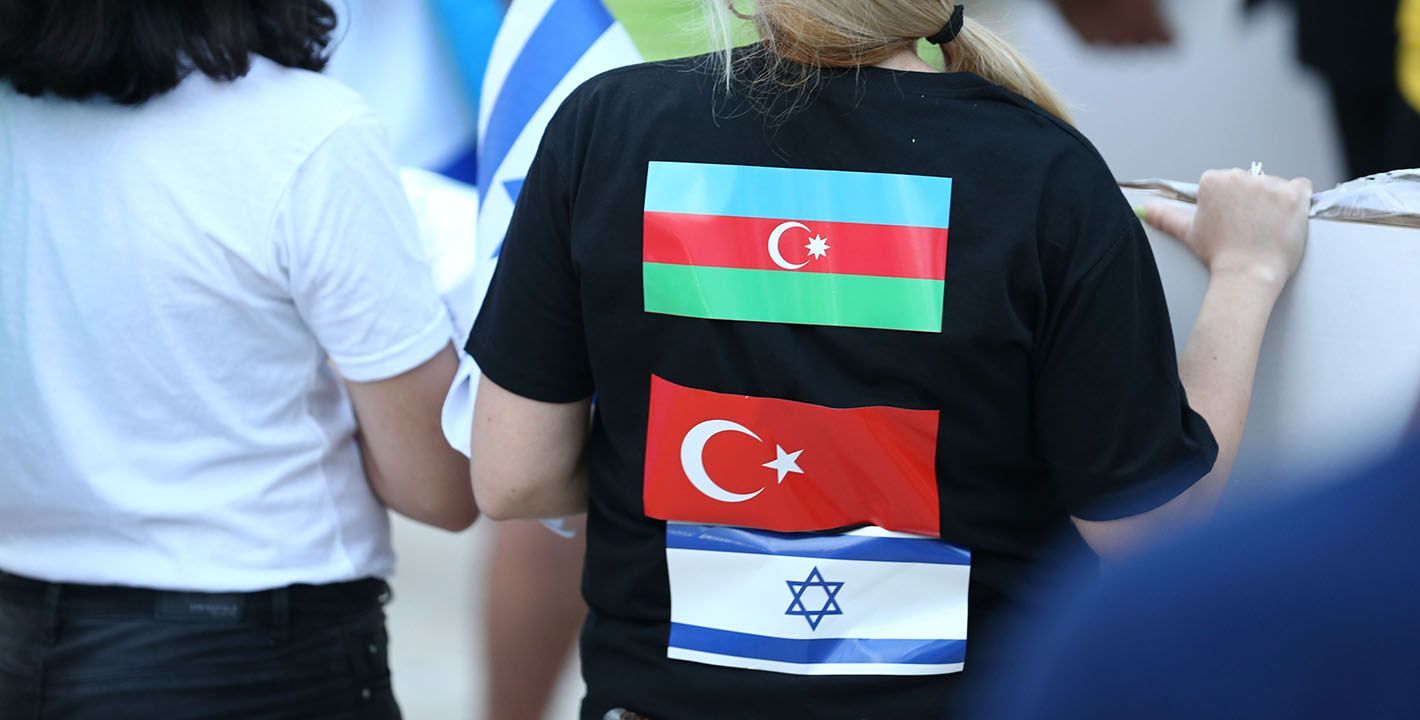Aron Lund
{
"authors": [
"Aron Lund"
],
"type": "commentary",
"blog": "Diwan",
"centerAffiliationAll": "",
"centers": [
"Carnegie Endowment for International Peace",
"Carnegie Russia Eurasia Center"
],
"collections": [],
"englishNewsletterAll": "",
"nonEnglishNewsletterAll": "",
"primaryCenter": "Carnegie Endowment for International Peace",
"programAffiliation": "",
"programs": [],
"projects": [
"Eurasia in Transition"
],
"regions": [
"Middle East",
"Syria"
],
"topics": []
}
Source: Getty
Did Christmas come early this year? In the past few days, the world media reported that the wealthy countries of the West will resettle 100,000 Syrian refugees on the urging of the UN High Commissioner for Refugees (UNHCR).
But yes—of course it's too good to be true. On closer inspection, it turns out that the 100,000 figure includes 62,000 resettlement cases already pledged since last year, which leaves 38,000 saved refugees in this particular Christmas gift.
Since 2011, approximately four million Syrians have been forced to flee their country. Most have come no further than Lebanon, Jordan, Turkey, Iraq, or Egypt, the five countries that have shouldered 95 percent of the refugee burden following Syria’s breakdown. In other words, the West’s offer of 38,000 places for resettlement amounts to less than one percent of the total, or about two weeks of new arrivals to the UNHCR refugee camps.
Sending Guns, Refusing Refugees
One year ago—or if you prefer, 1.5 million refugees ago—I wrote a post for Syria in Crisis that discussed the international response to this crisis and noted that there was a curious pattern to the statistics:
In almost every case, the states most deeply involved with fanning the flames of the Syrian civil war—like Saudi Arabia, Qatar, Iran, and Russia—are also the ones most reluctant to take in its refugees.
This pattern still holds in 2014. In a new 43-page report from Amnesty International, “Left Out in the Cold: Syrian Refugees Abandoned by the International Community,” the failure of the international community is documented country-by-country, and it is grim reading.
Syrians Not Welcomed in the Gulf
Just like in 2013, the Arab oil monarchies of the Gulf Cooperation Council (GCC) are among the worst offenders. The Gulf Arab states are some of the primary funders of the armed rebellion in Syria, but in four years not one of these six ultra-wealthy Arab states has agreed to resettle even one single refugee.
Nor do they grant protection for those Syrians who arrive to apply for asylum on their own, without the aid of UNHCR. After four years, the combined GCC total stands at five—not five million or five thousand, but five. That’s three Syrians in Bahrain, one in Kuwait, and another in Qatar.
Assad’s Allies Also Ignore the Refugees
The same callous attitude is on display on the other side of the conflict. Russia’s interest in helping Syria appears limited to one single Syrian: President Bashar al-Assad. Just like the GCC monarchies, Russian President Vladimir Putin’s oil-financed regime has refused to resettle even a single Syrian refugee.
And it gets worse. While the GCC countries are at least willing to use some of their wealth to finance aid efforts in Syria and along its borders, Russia stands out in a survey by the Oxfam aid group as among the least charitable among all nations investigated. While most Gulf states do fairly well on aid provision—Kuwait deserves particular praise—the Russian government donates only 1 percent of what would be its “fair share” of aid costs given the size of its economy.
Few figures are available for Assad’s other main allies, Iran and China, but there is no reason to expect them to be any better. Iranian military and economic aid is considerable but geared only to propping up Assad’s regime, while the Chinese intervention is largely limited to UN Security Council vetoes; it accepts zero Syrian refugees.
Germany and Sweden Stand Out
The rich democracies of the EU aren’t much better, but two countries stand heads and shoulders above the rest—and as it happens, these two have also been among the most consistent opponents of European military involvement in Syria.
One is Germany, which has now pledged to receive some 30,000 resettlement cases from UNHCR. That’s more than the rest of the industrialized world combined and it accounts for 82 percent of the EU total.
The other is Sweden. The Swedish government has accepted only 1,200 UNHCR resettlement cases, but it has received an additional 50,000 individual asylum seekers from Syria. Germany received around 46,000 such asylum seekers while the rest of the EU combined took in no more than 53,000, according to Amnesty’s statistics.
France and the UK: Closed Borders
With few exceptions, the other 26 EU members seem more concerned with shutting their borders than with offering refuge to Syrian citizens. That includes large nations such as the UK, France, Italy, Spain, and Poland. Spain has offered up the paltry figure of 130 places for Syrian refugees and has given nothing at all to the UNHCR funding drive for 2014, while Italy and Poland both refuse to grant resettlement to one single Syrian.
The UK and France—the two European nations that are the most deeply involved in the Syrian conflict, sending arms, bombing, and trying to get the EU militarily engaged—are doing their very best to shut out the resulting refugee flows. Together, they have accepted less than 2,000 resettlement cases and around 8,000 asylum seekers. And while the UK at least makes a serious effort to donate aid to Syrian refugees in Lebanon, Jordan, and Turkey, France appears disinterested in helping Syrian civilians in that way.
Another Year of American Promises
What about the most powerful democracy of all? At a glance, it looks good: the United States is the single-largest provider of humanitarian aid to Syria and the surrounding region. (You probably knew this already, because the U.S. administration rarely neglects to point it out in speeches and statements on the Syrian crisis.)
Unfortunately, that’s only because of the size of the U.S. economy. Measured against its GDP, the United States quickly slips to three-fifths of its fair share, according to Oxfam calculations. That's far below the level held by most Gulf states and not significantly better than the EU average. But sure, better than Russia.
On refugees, it’s even worse. For years, the U.S. government has pledged to receive a “large” number of Syrian resettlement cases from UNHCR. In practice, however, the Obama administration has done nothing to turn these promises into policy. By spring this year, the number of Syrians resettled in the United States since the start of the war apparently stood at 121 persons. Even accounting for other types of refugee admission, the United States has received only a few thousand Syrians in nearly four years.
At the recent UNHCR conference in Geneva, where countries pledged to receive more Syrian refugees—or more commonly, didn’t—the American delegation held a very nice speech saying that 2015 will be different and that the United States now “plans to lead” on resettlement.
That would be a welcome change, but the United States still hasn’t pledged a firm number, so seeing is believing.
No End in Sight
As the wealthiest members of the international community fail to address this issue, the number of Syrians in need of resettlement will only keep growing. Already, some 6.5 million people are internally displaced inside Syria, and many of them will at some point find the opportunity—or finally be forced—to escape abroad. As if the violence and bombings weren’t enough, Syria’s economy and infrastructure are crumbling. Steep price hikes on fuel and basic goods are already making it impossible for poor families to make ends meet, and there’s no safety net to catch you if you’re a Syrian in Syria—fleeing to food security will be your only option when money runs out.
To make matters worse, the increasingly dire economic situation isn’t being met by increased aid spending from the international community. To the contrary, even as Western and Arab nations lavish billions of dollars on military action, they remain unwilling to spend far smaller sums on the basics of keeping Syrians alive and saving what remains of Syria's social cohesion and civil society.
Donor fatigue has already set in and the World Food Programme was recently forced to suspend food deliveries for 1.7 million Syrians. Although an emergency collection drive (with last-minute donations from Saudi Arabia, Norway, the Netherlands, and other nations) helped restart the program on December 10, nearly two million Syrians had for a moment teetered on the brink of disaster.
With no end in sight to the conflict, this drama will surely be repeated in a year from now, and every winter after that, until payments finally fall short and starvation sets in.
Meanwhile, Syria’s neighbors are buckling under the pressure. Iraq has already broken down into renewed sectarian mayhem, while Lebanon is quietly drifting into a low-level civil war. Sunni-Shia and army-rebel skirmishes are now a routine occurrence in the Syrian-Lebanese borderlands, while the central government fades from sight. (On December 11, Lebanon passed its 200th day without a president.) And in Jordan, the Syrian war was already taking a serious toll on the economy, when Iraq exploded this summer, raising new fears about security and stability.
Against this bleak backdrop, the pledge of 38,000 additional resettlement places from the wealthiest countries of the world is not only undeserving of all the international fanfare and the talk of “diplomatic success.” It is in fact woefully inadequate and further evidence that if you’re Syrian, you are truly on your own.
About the Author
Former Nonresident Fellow, Middle East Program
Aron Lund was a nonresident fellow in the Middle East Program and the author of several reports and books on the Syrian opposition movement.
- Going South in East GhoutaCommentary
- The Jihadi SpiralCommentary
Aron Lund
Recent Work
Carnegie does not take institutional positions on public policy issues; the views represented herein are those of the author(s) and do not necessarily reflect the views of Carnegie, its staff, or its trustees.
More Work from Diwan
- Axis of Resistance or Suicide?Commentary
As Iran defends its interests in the region and its regime’s survival, it may push Hezbollah into the abyss.
Michael Young
- Kurdish Nationalism Rears its Head in SyriaCommentary
A recent offensive by Damascus and the Kurds’ abandonment by Arab allies have left a sense of betrayal.
Wladimir van Wilgenburg
- All Eyes on Southern SyriaCommentary
The government’s gains in the northwest will have an echo nationally, but will they alter Israeli calculations?
Armenak Tokmajyan
- Iran’s Woes Aren’t Only DomesticCommentary
The country’s leadership is increasingly uneasy about multiple challenges from the Levant to the South Caucasus.
Armenak Tokmajyan
- Is Lebanon Hosting Officers of the Former Assad Regime?Commentary
Recent leaks made public by Al-Jazeera suggest that this is the case, but the story may be more complicated.
Mohamad Fawaz







